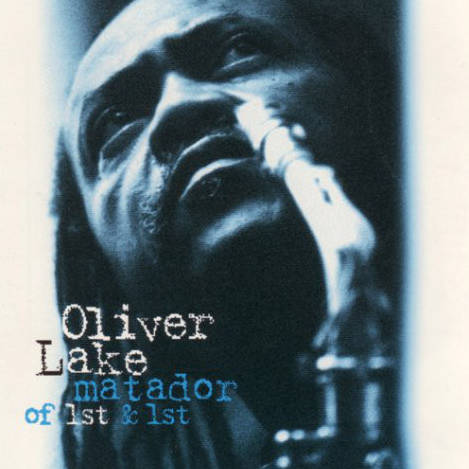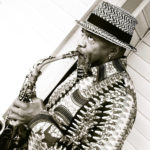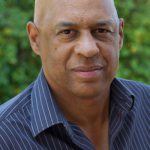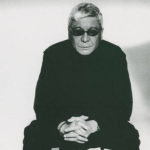
From a 1980 feature in the Richmond Style Weekly
Lake’s playing [shares] equal billing with his poetry in his one-man show “Matador of 1st and 1st.”
“Matador” is a multifaceted collection of pieces: words, songs and instrumental compositions, each reflecting an aspect of Lake’s intelligent, often bemused perspective. “It’s culled from my experiences as a musician, as a family man and from my travels,” Lake says. “Once you become a poet you expose yourself, so this performance is pretty much me.”
Lake recalls playing behind poets before he began to write his own poetry. But “Matador” is far from a typical poetry reading. “It is a theater piece, totally memorized, with three or four costume changes,” Lake explains. “The performance lasts an hour and 10 minutes, pretty much evenly divided between music and words. I use musical sequencing to relate the poetry to music, and music to poetry.”
The balance was created in collaboration with Oz Scott, who directed the adaptation of Ntozake Shange’s poetry to the Broadway stage in the hit “For Colored Girls Who Have Considered Suicide/When the Rainbow is Enuf.” “[Scott] helped me shape my work into a theater piece, helping with the staging and lighting,” Lake says. “Oz calls the form a ‘choreopoem.'”
During the past five years, Lake has performed “Matador” to critical acclaim in a wide variety of venues, including two off-Broadway engagements. The performance has also been released on CD and videotape through Lake’s independent “Passin’ Thru” label. According to Lake, except for a few minor modifications — removing dated references to the Clinton White House, for example — the show is unchanged.
The strength of “Matador” lies in Lake’s combination of cutting insight and kindness. The title piece is a good example. It focuses on a street person who challenged traffic at a corner near Lake’s home in the East Village. “He would attack cars,” Lake recalls. “I would see him standing in the middle of the intersection, then he would run up and jump on someone’s hood, spinning and dancing around. Cars would pull over, trying to avoid him.”
Lake envisions a quixotic integrity behind the apparent madness, a champion who stands up to the machines that chase everyone else from the street. “I saw it as symbol of making choices, about life, about living in New York City,” he says.
| Credit | Artist | Photo |
|---|---|---|
| Playwright | Oliver Lake |  |
| Director | Oz Scott |  |
| Set Designer | Skip Mercier |  |
| Lighting Designer | Antoinette Tynes |  |
| Sound Designer | Genji Ito |  |
| Actor | Oliver Lake |  |
All 1994-95 Season productions:

